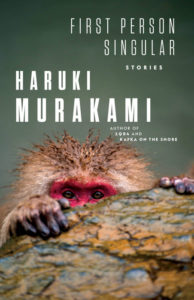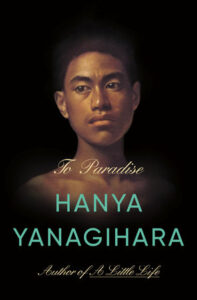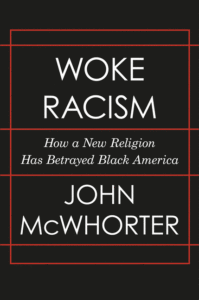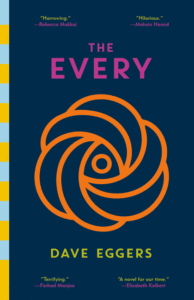
Here we all are again at the end of the world year. Yes, another plague-stricken turn around the sun is in the books and festive cheer, understandably, appears to be in short supply. At the time of writing, holiday parties and family gatherings are disappearing into the Omicron ether, something called a “Doomsday Glacier” is threatening to break free from the West Antarctic ice sheet, and all over America people are spending their life savings on NFTs of blasé primates.
Thankfully, there are still some year-end traditions that will, like the plucky cockroach, survive all manner of chaos and cataclysm. I refer of course to our annual smorgasbord of literary schadenfreude (now in its fifth incarnation), which, I’m delighted to report, is more jam-packed and sinfully delicious than ever.
Among the titles being cast into the maw of the volcano this year: Blake Bailey’s oozing hagiography of Philip Roth, Mitch Albom’s latest cavity-inducing parable, Andrew Sullivan’s overfull toilet of essays, and Malcolm Gladwell’s smug apologia for American butchery.
We present to you now, in all their abject glory, the most brilliantly bilious book reviews of the year.
Bon appetit.
*
“Normality has totemic significance in Rooney’s writing: her characters either think of themselves as ‘special’—that is, smart and sensitive but stranded among normal people—or they yearn to be normal rather than fucked up and damaged. There is a relentless keeping score on this account, not only of who is a ‘normal’ person but of who is a ‘good’ or ‘bad’ or ‘nice’ or ‘evil’ person. Every action, every bit of behaviour, may reveal an essence. It’s a strange way of portraying characters who are basically innocent and not in the least weird … That Felix is also kind to his dog completes the cornball Hollywood logic of his appeal, a redeeming quality in a dumbass bore … How much you enjoy Rooney’s novels—enjoyment is the point, and there’s no denying her broad appeal—depends on your attitude towards her characters. I’m not talking about likeability, or the moral status these people are constantly calculating, or their relentlessly avowed leftist politics: that’s fine—plenty of people talk a radical talk and live their lives as complacent liberals. I mean simply: are they interesting? … There is lots of sex. For a good span of the novel, every chapter that isn’t an email climaxes with a sex scene. These weren’t my thing. Relayed in a cold third person, they lack the emotional point of view of the sex in Rooney’s earlier books, which are sparer and less porny. They sound not unlike moving furniture, and have something in common with a couple of scenes of Felix sorting packages at the warehouse.”
–Christian Lorentzen on Sally Rooney’s Beautiful World, Where Are You (London Review of Books)
“All forked out, Roth could redirect and redeploy his warlock energy and remaining resources on the later fiction…while casting the most important role of all before the Big Fade-Out. Enter the biographer. Not just any golden retriever would do. In Roth’s case, the position required a literary Lego architect of tact, sophistication and meticulous care, not some racketeer who would go rooting around behind his back but a capable junior partner who could take direction and follow the sheet music … With the diligent and diplomatic Bailey, Roth appeared to have made the right choice. If anything, he appeared to have made too right a choice, a certain conceited quality stardusting their collaboration, The Biography at times taking on a buddy tone with a fireplace glow … Later in life Roth would lament to Bellow that much of the fun had gone out of teaching—‘You used to be able to sleep with the girls in the old days ... and now of course it’s impossible. You go to feminist prison’—and this loss in penis-privilege is unlikely to evoke pathos in any but the most predatory. Did Roth and Bailey exchange similar sighs, invoking the iron clang of feminist prison? The allegations of predation against Bailey have raised the specter of an affinity between him and Roth that frames their relationship less as that of biographer and subject and more that of co-conspirators—partners in slime, a fraternal symmetry.”
–James Wolcott on Blake Bailey’s Philip Roth: The Biography (London Review of Books)
“Making your way through the barrage of lies, half-truths, innuendoes, and provocations that characterize this 576-page miscellany of Sullivan’s career has all the appeal of plunging an overfull toilet: you just know shitty water’s going to soak the bathmat. … Sullivan, however, has spent the better part of forty years clinging to fantasies of a rational, compassionate conservatism ‘dedicated to criticizing liberalism’s failures, engaging with it empirically, and offering practical alternatives to the same problems’—as though this is a thing that has ever existed anywhere in the history of the world … At the beginning of this book you get the sense that Sullivan’s gaslighting his readers, but the deeper you go you start to wonder if he’s actually gaslighting himself … That’s right, folks: as many as a million people were killed in a pointless war that Andrew Sullivan hawked like a fishwife for no other reason than his need to punish as many Muslims as possible for 9/11, but what’s important to remember is that he feels really bad about it … he doesn’t realize his alienation stems from wanting to belong to clubs whose members hate him not for what he says or what he does but for what he is.”
–Dale Peck on Andrew Sullivan’s Out on a Limb: Selected Writing, 1989-2021 (The Baffler)

“On the face of it, these tales may seem like elegantly constructed miniatures or vignettes that echo the perennial themes of Murakami’s more substantial fiction. But where his novels skilfully blend nostalgia with burgeoning sexuality and juxtapose fragmented realities against urgent quests for meaning, these stories are permeated by a vagueness and languor that border on complacency. Promising ideas trail off with almost wanton persistence, dissolving in the real Murakami’s own seeming apathy … When these insight-averse narrators are not basking in an unperturbed aura of self-ignorance, they ply the reader with an almost unrelenting litany of clichés … we are left wondering whether we are somehow being mocked. Perhaps Murakami’s point is that there is no point, which is all well and good, but in the absence of other, more redeeming features, it does not make for very satisfying literature. The characteristically aloof voice of each story, calculated to charm, masks the emptiness of this commercial brand of postmodernism, short-changing the audience while expecting it to supply all the meaning. At its best, First Person Singular is limp, insipid and apathetic; at worst, it seems to express outright contempt for its readers.”
–Bryan Karetnyk on Haruki Murakami’s First Person Singular (Times Literary Supplement)
“My Body is meant to signal a shift in Ratajkowski’s public persona, and to a certain extent, it does. She no longer seems quite as interested in convincing the world that there is political virtue in being sexy online … Yet her gaze is provincial, rarely extending past the confines of her own skin even when she is critiquing systemic issues … confessionals can come across as opportunistic and hollow. At their worst, Ratajkowski’s essays belong in this genre. She supplies details that seem designed to evoke sympathy, but read as rather strange and tone-deaf … Ratajkowski has lived an extraordinary life, and some of these stories demand to be told … But an extraordinary life does not necessarily birth extraordinary insights, and banality is what My Body ultimately suffers from … The mere ability to recognize the rottenness of patriarchy and capitalism also does not exempt you from perpetuating these constructs. Ratajkowski’s is a reassuring system of logic because it ultimately asks nothing of her beyond her comprehension.”
–Emma Levy on Emily Ratajkowski’s My Body (The Seattle Times)
“The project is admirable for its attempt to reckon earnestly with both the legacy of American Jewish literature and the material meaning of Jewishness today, but it’s also too beholden to fixed archetypes to respond imaginatively to the experience of contemporary Jewish life. Rather than bringing forth a new brightness from a broken tradition, his attempt to render the 20th-century Jewish American novel newly relevant through an ironic repurposing of exhausted tropes only carries us back into that lineage’s most familiar features. The result is a novel that understands itself as live and potent, but is really anemic, even undead … the success of the project requires a real demonstration of the continued vitality of the exilic Jewish imagination. Instead, The Netanyahus shows how, even with a glaze of self-consciousness and a thoroughgoing sense of irony, the exploitation of a sapped form can cut off avenues of new thinking, returning us to tired modes … The Netanyahus’ provocative premise sets it up to be such a novel, but its hubristic conclusion makes clear why Cohen was never up to the task … The self-parodying prose nearly defies credulity—and in fact, the postscript’s veracity is suspect … If Cohen has so far given us only variously interesting failures, it may be because he finds himself continually compelled to try to build a new Temple, rather than dwell in the ruins.”
–Nathan Goldman on Joshua Cohen’s The Netanyahus (Jewish Currents)
“…by taking up military history, Gladwell’s half-witted didacticism threatens to convince millions of people that the only solution to American butchery is to continue shelling out for sharper and larger knives … The stakes of The Bomber Mafia are no less than World War II and life or death, and yet Gladwell’s narrative is transmitted as seamlessly as the Wall Street or Silicon Valley koans that appear atop LinkedIn profiles, Clubhouse accounts, and Substack missives. Even his statements of objective fact are written to look like something an HSBC junior analyst might tell himself after a bad quarterly review … The flap jacket of The Bomber Mafia, which will undoubtedly grace the fingers of thousands of customers at Hudson News kiosks and Barnes and Nobles around the country, claims that it is ‘a riveting tale of persistence, innovation, and the incalculable wages of war.’ How can someone bother calculating that which he doesn’t even count?”
–Noah Kulwin on Malcolm Gladwell’s The Bomber Mafia (The Baffler)
“As this divine ordeal drags on, the Lord offers what passes for profundity … Alas, the survivors’ prayers go unanswered, as did mine for better dialogue … Such soggy inspirational literature makes me seasick. Everything about The Stranger in the Lifeboat is sketched in cartoon colors—from its vacuous theology and maudlin tragedies to its class warfare theme. Instead of character development, TV news reports interrupt the story to provide potted biographies of the lost souls. And the Lord’s statements supply all the holy insight of a sympathy card from your insurance agent … Panning a book like this may feel like harpooning a minnow, but I think treacly metaphysical fiction does us a cultural disservice. To borrow a word, it narcotizes people in search of real spiritual wisdom. That’s a shame because every religious tradition and many thoughtful writers of faith provide profound guidance through dark times of despair and grief. Cotton candy such as The Stranger in the Lifeboat is a saccharine substitute that spoils the appetite for sacred food.”
–Ron Charles on Mitch Albom’s The Stranger in the Lifeboat (The Washington Post)
“Of all the novels responding to the Trump presidency, Richard Powers’s Bewilderment may come closest to pure propaganda … most of its politics will be innocuous to any imagined audience. If you aren’t in favour of killing endangered animals, of invalidating visas, of throwing out properly cast votes and of denying helpful therapies to suffering children, you will find little in the novel to argue with … It’s hard to find characters more in need of sympathy outside a Hallmark card … you feel yourself getting stupider and meaner the wiser and more prophetic Robin becomes. Powers seems to want Robin’s indignation to appear as a form of righteous cuteness, but his benevolence is immediately insufferable … lowest common denominator liberalism: a combination of self-pity, self-flattery, self-flagellation and baseline contempt for declared (Trump) and putative (unscienced) enemies … Robin’s…less a boy than an allegory: for the death of democracy, for the death of the Earth, for human self-destruction trumping life of all kinds, here and in outer space. Certainly, all of this is sad, and none of it is cool.”
–Christian Lorentzen on Richard Powers’ Bewilderment (London Review of Books)

“Famously, the editor Gerry Howard called A Little Life a ‘miserabilist epic’ and suggested that Yanagihara cut out some of the suffering heaped upon her protagonist—advice she did not take. Howard has since retired, but following the novel’s critical and commercial success, Doubleday evidently learned its lesson: To Paradise appears not to have been edited … In her alternative history, the fight for the ‘freedom of marriage’ all but replaces the abolition movement, complete with an underground railroad for gay people … There’s a natural temptation to treat To Paradise like a David Mitchell novel and try to connect the dots…but any attempt proves futile. Like a play in which the set pieces are recycled and the actors rotate through multiple roles, To Paradise is composed of a series of characters who reside at the same address and have the same names but are not related…What meaning are all these echoes supposed to convey? That the American experiment is rotten to the core, but that escape is hopeless? That there is no paradise on earth? Sure, but then why all the Davids? … What is clear is that she intends Charles’s story as an epidemiological cautionary tale, and it is in Charles’s letters that To Paradise transitions from multicentury gay epic to COVID-19 protest novel. Much of his scientific narration reads like it was drawn from New York Times explainers … Two years into the COVID-19 pandemic, it’s worth reexamining the ideas that took hold in its panicked early days…There are real questions to be asked, and To Paradise is bold enough to raise them. But between its unlimited supply of Davids and its triptych of American history, no larger lesson emerges. It’s easy enough to depict a metanarrative of civilization’s decline if you can tweak the past to be more egalitarian than it was, and render the future more dully totalitarian than it’s likely to be. And if the antidote to dangerous ideas is didactic storytelling, I have to wonder (apparently with Yanagihara) whether the cure is worse than the disease.”
–Rebecca Panovka on Hanya Yanagihara’s To Paradise (Harper’s)

“… a standard-issue tirade against ‘cancel culture,’ a Bill Maher routine without the jokes or a Tucker Carlson segment without the bow tie and smirk. The alleged twist here is that it’s a Black man saying it this time. Even that has been done better and less hamhandedly by the past few years of Dave Chappelle’s career … He just seems to believe that making culturally conservative arguments while Black is inherently thoughtful, or at least provocative. It’s not … he warns that it is ‘coming after your kids’ with a breathlessness that makes him sound less like a thoughtful academic and more like a conspiracy theorist looking for hidden critical race messages in the menus at Chuck E. Cheese. McWhorter never engages with any of the actual cultish movements that are threatening American democracy … his work fits neatly within the long history of African American assimilationist thought … If McWhorter’s readers dismiss him out of hand, it will be because of these sort of ahistorical arguments, not because of the color of his skin. They expose him not as a race traitor but as an unserious person, one either unwilling or incapable of contributing meaningfully to the discussion of race, politics and free speech in modern America.”
–Elie Mystal on John McWhorter’s Woke Racism (The Washington Post)

“What ought to distinguish a great novel from a passable one is not the social position of its audience, but the quality of its prose … These forty-nine words—the opening of Crossroads, the first book of Franzen’s trilogy A Key to All Mythologies, which is being touted as a culminating achievement—contain a series of errors so basic the hypothetical Franzen would not have failed to circle them in red pen had one of his eager-to-impress students turned it in for their first workshop … this is not the sort of merely competent, work-a-day, unexciting prose for which young, degree-holding American novelists are often chastised; it is nonetheless prose of a very deep shade of purple, and its author is not in a position to plead inexperience, time pressure, editorial meddling, or the need to appease the public … The question, for Franzen, is whether, in telling his story about the Hildebrandts, he provides a richer, more complex, more profound aetiology than the ones we’re used to … we are served yet another helping of sex (adulterous desire for Russ; incestuous desire for Clem; first love for Becky), drugs (‘ludes for Marion; pot, ‘ludes, Dexies and coke for Perry), and rock n’ roll (whose cachet in the person of Tanner Evans is responsible for the popularity of Crossroads) with a side of War, What Is It Good For, all of which is covered with an insipid gravy of period signifiers … Neither ‘new’ nor particularly ‘strong’ let alone ‘counterintuitive’, the first volume of A Key to All Mythologies gives little indication that Franzen is up to it … Crossroads is far from the novel that America needs; unfortunately, it is exactly the one it deserves.”
–Ryan Ruby on Jonathan Franzen’s Crossroads (The New Left Review)

“Nothing is left to the imagination in The Every, which moves relentlessly from one mocking sendup of tech culture to the next, taking trends like athleisure and public shaming to their fullest, worst extent … These characters are repulsive, pitiful, obvious warnings of tech’s ability to unhinge. But there’s also a touch of cruelty in Eggers’s attempts to get us to despise them … [One character’s] theories seem to announce Eggers’s argument so transparently that the 577-page novel has the feel of a sandwich board with ‘THE END IS NIGH’ scrawled on it … For a defense of nuance and unpredictability, The Every exhibits a startling lack of both … Very little is left to interpretation … I wished, often, to be allowed to come to my own conclusions, exercise my own subjectivity—that same endangered faculty the novel mourns … For a long novel, the story is strikingly static, its message so unchanging that a plot never really develops. Instead, the events that occur in the book’s latter half …are oddly disjointed and unexplained … This book is meant to be extreme and off-putting, to scare us straight, sunk as we are in tech complacency … A funny thing about novels though: Often, the more convinced they are, the more they fail to convince.”
–Chelsea Leu on Dave Eggers’ The Every (The New York Times Book Review)
“For someone who so frequently and serenely proclaims that he’s right, Steven Pinker can get curiously defensive … Pinker spends page after page walking us through concepts like ‘base-rate neglect’ (giving too little weight to the original probability of an event in the face of new information) and the ‘availability heuristic’ (guessing the likelihood of an event according to what comes easily to mind) … When Pinker is dealing with abstract puzzles involving small-stakes situations, the book is familiar but fine … The trouble arrives when he tries to gussy up his psychologist’s hat with his more elaborate public intellectual’s attire … Some of Pinker’s observations on racial issues are similarly blinkered … The tone of Rationality isn’t as relentlessly chipper as that of the previous book, but Pinker’s optimism seems to have weathered the Trump years and the pandemic largely intact. He still disparages those who have the audacity to question his ideas about progress … In 2007 Pinker lent his professional expertise to Epstein’s legal defense team…a sterling example of a thinking process so confidently pristine that it can give unthinking cover to the grotesque.”
–Jennifer Szalai on Steven Pinker’s Rationality (The New York Times)
“Packer’s latest, Last Best Hope: America in Crisis and Renewal, is all blind spot. At barely more than two hundred pages, it manages to feel more indulgent than his previous books, respectively two and three times as long. Packer is a gifted reporter and storyteller but a mediocre polemicist, and with Last Best Hope, he has embraced polemics at the expense of reporting and storytelling …Last Best Hope is shaped by the context in which it was written: during a period when Packer, like many of us, had a lot of time to kill and a lot of things to get off his chest … granting these four narratives equal weight, and holding each in equal contempt, is substantively the same as the ‘both-sidesing’ tendency that establishment media mandates—a tendency that has permitted the illiberal right to mainstream itself in one party while the other party is still run by anodyne moderates … Having read Last Best Hope, I’m still unclear how Packer thinks political change actually happens; he seems far more concerned with how individual change agents ought to conduct themselves … liberal nationalist mythmaking is offered as a direct alternative to woke cancel culture, which Packer repeatedly criticizes throughout the book. As is so often the case with the present culture wars, a lot of what is packaged as principle seems to come down to petty media beef … You’ve probably encountered Packer’s basic critiques of Black Lives Matter, social justice activism, and ‘wokeness’ in dozens of articles and Substacks over the past year, so I won’t belabor them, but suffice to say he considers them crises on a par with the right-wingers who stormed the Capitol, and if anything, works harder to sympathize with the latter.
–David Klion on George Packer’s Last Best Hope: America in Crisis and Renewal (The Baffler)
“…reads like an extended version of one of those high-price talks … If you’ve ever attended a corporate retreat with a ‘thought leader’ speaker, or listened to enough TED talks online, you know the genre. Weaving together historical examples from across centuries and continents, illuminating statistics, intriguing academic research, and a few pop-culture references, these lectures have the effect of making audiences feel instantly smarter, without troubling them with the kind of soul-searching questions that might ruin a good night’s sleep or the conference cocktail party … In this fluid yet fleeting manner, Ferguson devotes the first third of his book to analyzing dozens of grand explanations for historical calamity, from religious eschatology to Marxist economics to the more modern innovations of ‘chaos theory’ and ‘cliodynamics,’ or the computer-driven attempt to decode historical patterns through massive data crunching. Like a good, Oxford-educated, small ‘c’ conservative, he finds them all interesting but ultimately wanting in their failure to acknowledge historical unpredictability and the limits of human foresight … Despite the pose of scholarly detachment that characterizes most of the book, Ferguson also betrays several striking biases in his closing chapters … History also offers many examples of the social and economic havoc that can result from such maddening inequality, but those stories may not go over so well with the well-heeled audiences that await Ferguson back on the speaking circuit. Safely vaccinated and wealthier than ever, they’d rather not picture that gray rhino.”
–Mark Whitaker on Niall Ferguson’s Doom: The Politics of Catastrophe (The Washington Post)
*
Appetite for annihilation not yet sated?
Reacquaint yourself with The Most Scathing Book Reviews of 2017 , 2018, 2019, and 2020.
If you buy books linked on our site, Lit Hub may earn a commission from Bookshop.org, whose fees support independent bookstores.

